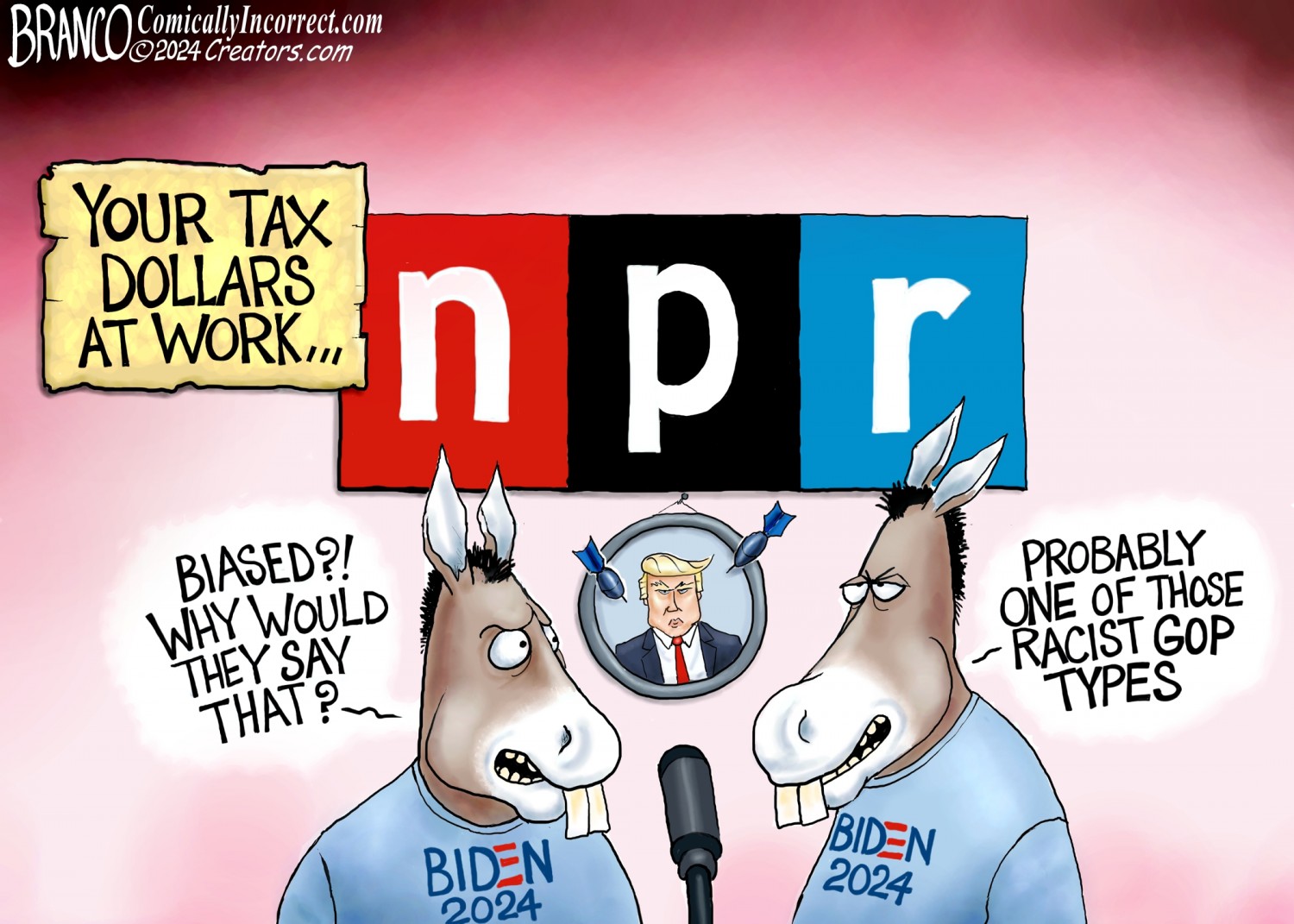Cheap Seats 2024 By Rich TrzupekNational Partisan Radio - 04/17 
By Rich Trzupek
Writing in the Free Press last week veteran editor for National Public Radio (NPR) Uri Berliner published an opinion piece that was at once both bombshell and “meh.” No reasonable person should have been surprised or offended to hear someone opine that NPR has a strong liberal bias. All the evidence needed to support that point of view can be obtained by listening to NPR for about 15 minutes. The amazing part of this story is that someone who worked at NPR should dare to admit it.
The legacy media suffers from a debilitating case of “Conkrite Disease” – the unfortunate tendency among journalists to believe that they are and should be the arbiters of truth in a free society and that given that sacred mission they are somehow incapable of allowing their personal prejudices to influence how they communicate and the messages they send. Should they bother to look in the mirror, they see only perfection staring back.
NPR President and CEO Katherine Maher proved herself particularly adept at this singular form of naval gazing. In part of her response to Berliner’s essay, she said: “It takes great strength to be comfortable with turning the eye of journalistic accountability inwards, but we are a news organization built on a foundation of robust editorial standards and practices, well-constructed to withstand the hardest of gazes.”
If it takes “great strength” to conduct a self-assessment of your job performance, one might consider finding a new career or entering a 12-step program. Whatever one does for a living taking an honest look inwards is an integral part of doing it. It doesn’t require “great strength,” it requires honesty and common sense.
If Maher took “journalistic accountability” seriously, she would admit what has been true of journalism since the first caveman chipped out the initial edition of the New Rock Times: journalists are people, people have prejudices and those prejudices influence what stories they tell and how they tell them. It has always been so. Andrew Jackson is, arguably, the father of angry political division in the United States, a less than respectful tradition that has continued more or less uninterrupted till this day. Back then you had pro-Jackson Democrat papers who presented the news in a way that made Old Hickory look good, and pro-Whig journals that made the president sound like a raving lunatic. Any of this sound familiar?
During the Civil War Democrat leaning publications referred to President Lincoln with charming epitaphs like “the Original Ape,” while those sympathetic to Republicans tended to be somewhat kinder to “Honest Abe.” It was the same with FDR. It was the same with Nixon. It is and ever shall be a part of the way a truly free press operates. What’s disappointing is when journalists climb up on a towering marble pedestal and refuse to even admit the possibility that personal prejudices might influence what they talk about and how they say it.
Today, in an increasingly complex world, the excuse most often cited to justify personal prejudices is the argument from authority: that “experts” are the arbiters of truth and journalists are qualified to identify experts from posers. Let’s use me as an example. I can claim, with confidence, that I know much more about atmospheric chemistry, environmental issues and air pollution than 99 percent of the people in the country. That’s not because they are ignorant, but because I’ve spent an almost 40-year career working in that space.
There are some outlets that are interested in my point of view on environmentally related issues in my wheelhouse. I’ve been on Fox, I’ve testified before Congress, written for Examiner Publications for more than 20 years and The Epoch Times regularly accepts my work (although, for the record, the editors often ask questions to verify my assertions – as they should). However, when I’ve been mentioned in left-leaning outlets like HuffPo or Media Matters, etc. it’s inevitably to disqualify me using the argument from authority. I don’t have a PhD, so how can I claim to know more than those who do? I work for industry, so surely my integrity has been compromised. Etc. MSNBC etc. only features “experts” that agree with their narrative because to disagree with the narrative automatically disqualifies you as an expert.
There is, in my humble opinion, no such thing as an unbiased journalist. There are rather journalists who have the wisdom and courage to own their bias and those that do not. NPR is, and has long been, a collection of people who not only refuse to own their prejudices, their remarkable degree of hubris prevents them from even being aware it exists.
Email: richtrzupek@gmail.com
|